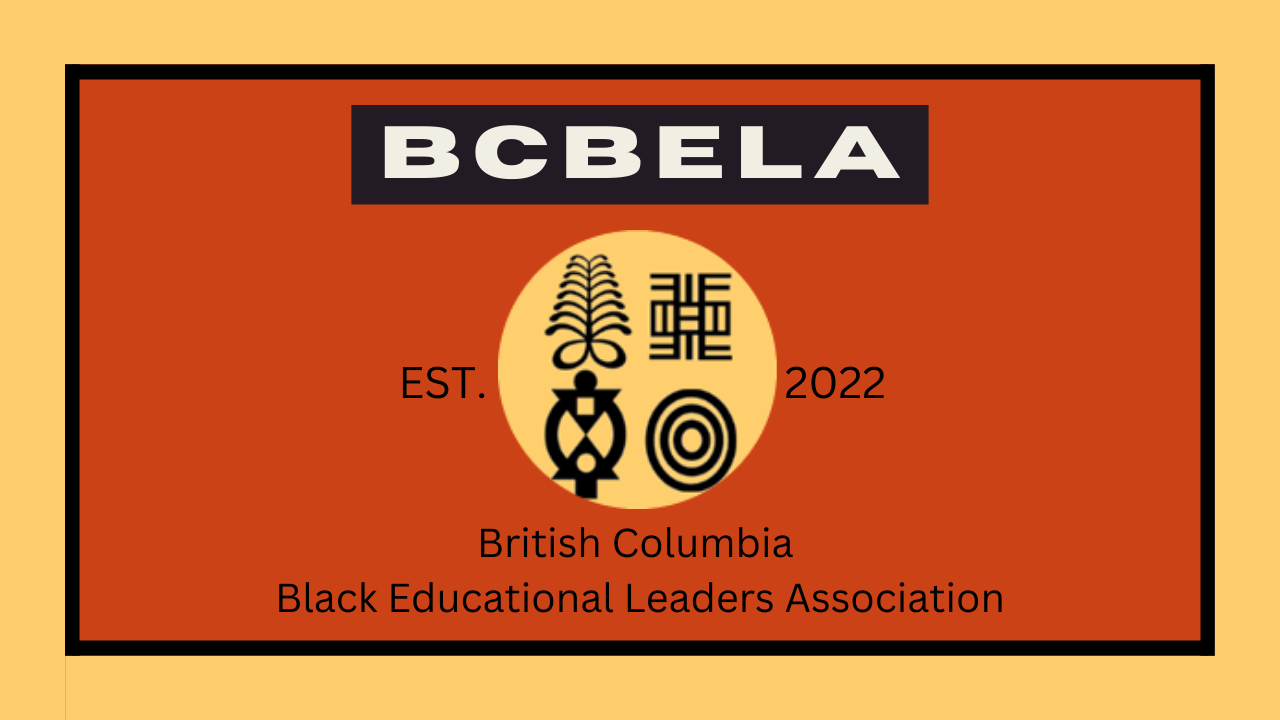BCBELA
BCBELA
BCBELA is an association with the mission to empower and inspire educators who self-identify as Black or of Black African descent to build thriving learning communities by uplifting Black voices and dismantling anti-Black racism and all forms of oppression.
It envisions a world in which all education partners understand and acknowledge Black history, joy, love, contributions, and achievements. Through our collective leadership, advocacy, and solidarity, we commit to the transformation and improvement of education in British Columbia for all.
Executive Members
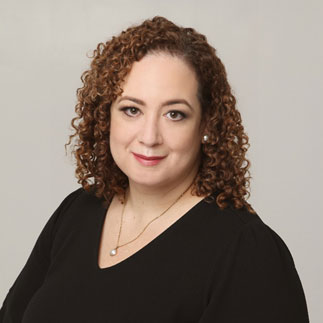
Beth Applewhite is the District Principal of Equity, Diversity, Inclusion, and Reconciliation with the Burnaby School District. BC-born and raised, Beth is a bi-racial educator of Trinidadian and Scottish heritages. During her 27 years in education, she has been unrelenting in her determination to challenge the status quo and create equitable experiences and spaces that both acknowledge racial bias and celebrate personal and cultural identities. Beth taught in Burnaby for 14 years before becoming a Vice-Principal in Surrey and later in Coquitlam. She recognizes that most folks value diversity, equity and inclusion. The challenge is encouraging them to be vulnerable enough to explore and reflect on their own biases, practices and rituals that contribute to school/district culture. Beth has been recognized for her work, including the BC Lieutenant Governor’s Community Achievement Award (2019). She was nominated for a YWCA Women of Distinction Award (2020) and was nominated for a Premier’s Award in Education (2020/21). She has also been named one of the 100 Accomplished Black Canadian Women (2020/2021). Beth is a founding Board member and the inaugural president of the BC Black Educational Leaders Association.
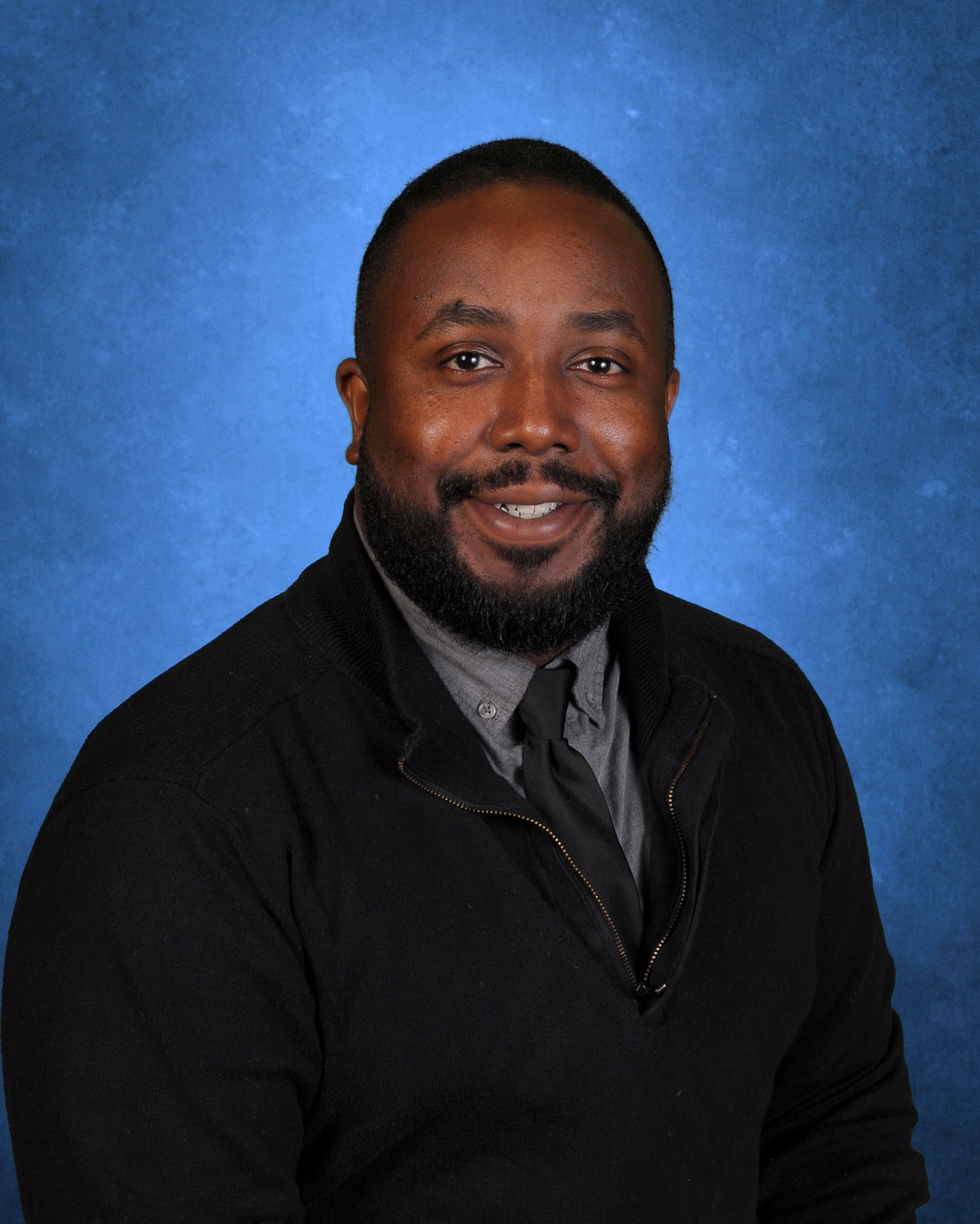
Kenneth Headley is a Caribbean/Black school administrator. He has been an educator for over 12 years and an advocate for marginalized students, their families and their communities. Kenneth focuses on providing meaningful opportunities to discuss issues of racial discrimination with students, parents and educators. Since 2016, he has played an integral role in the success of annual Anti-Racism Youth Symposiums and Black History Month Student Conferences. Kenneth completed his Bachelor of General Studies in Canadian studies and sociology at SFU. He completed his B.Ed at SFU as well as his Master’s Degree in Educational Practice, looking at integrating cultural narratives in the classroom. Kenneth taught in Surrey for 9 years before becoming a Vice-Principal with the Maple Ridge School District in 2018. He has been the District Vice-Principal of Diversity, Equity, Inclusion, and Anti-Racism with the New Westminster School District since August 2022. Kenneth is a founding member of the BC Black Educational Leaders Association Board.
Conversation with Beth Applewhite
- What is your background in Education and what made you choose this career path?
I got a double major in family science and English literature before doing my BEd at UBC. I was influenced by my mom and dad to choose education. My dad was an educator in the Carribean before coming to Canada and doing his engineering degree at UBC. I love school and intended to go to Law school since there were a lot of lawyers in my family. I wanted to initially work at a Law firm downtown but realized I wanted to have a larger impact on families and decided to be an educator. I wanted to make a difference in my community and make school a bit better for students. I wanted to improve on parts of school that weren’t so great for me as a kid. I would rarely see myself in school and I wanted to bring in my heritage and background. I didn’t see myself on the walls, in the faculty or in textbooks and I wanted to do better that way for representation. - What motivated you to form BCBELA?
Similar to my answer for the previous question, I wanted to have more representation for people that looked like me. I was often the only black person at the table in the classrooms and in the community.I was also a Chapter Council representative every few months with the BCPA of BC. I would seldom see black people in that space among hundreds of administrators. I felt isolated and a bit lonely being around people who didn’t share my experiences. Therefore, creating BC BELA was a step towards making space for people to feel heard, validated and be truly free to be their authentic selves.Another motivation was seeing the absence of black voices at the provincial level and I believed that having a provincial organization would increase our chances of being invited to the table. We want inclusion, representation and opportunities for all – not just black educators – and we want to do this by creating a more inclusive space for everyone.We also wanted a platform and organization for educators and black leaders to go to for help, support, understanding black history, joy, contributions, and achievements. We now have a group catering specifically to black educators in addition to organizations like BC Black History. We can help educators and leaders educate people in their communities about the importance of black issues and why they should matter to everyone. Black history and excellence are Canadian history.We also saw a lack of opportunities in PD for black educators so we hope to provide opportunities for meaningful PD in BC to focus on sustaining the use of EDID and anti-racism lenses.We want other educational partners to be able to alongside us. We hope to foster collaboration and reciprocal relationships so we can learn from others and help them in learning as well. - How have the efforts of BCBELA translated to real impact on the Black Educator community?
In just one year, we have had many testimonies, comments, and positive feedback from black educators that have joined in their feelings of being heard and being able to be the true version of themselves.People have been grateful to have a place to be themselves and not having to explain, justify, or share a situation by making it more digestible for others. They can share the truth about microaggressions they have experienced without being pushed down or dismissed.We have also seen and heard from black educators/classroom teachers who have shared never having black teachers when they were students and teachers who have never had black administrators. They thank us and feel better that we exist to provide a sense of pride and belonging. We are also able to provide them with mentorship for becoming leaders in their spaces.We are also now being invited to sit at the table by other more established associations such as BC FSA, Black History Month, the Ministry of Education etc. This impacts people because it legitimizes our work – encourages and validates other black educators/leaders. The work we are doing and sharing with others is being validated and acknowledged. - What are BCBELA's current goals and objectives?
BCBELA's current goals and objectives:- Holding a space for educators to be themselves and engage with courage and dignity.
- Building leadership capacity in black educators.
- Educating and bringing awareness of art, history, love, and joy throughout the k-12 system.
- Provide opportunities for PD to focus on sustaining the use of indigenous lenses as well on anti-black racism.
- Finding ways to support and walk alongside our education partners to create a more inclusive education system for everyone.
Values:
- Excellence
- Empowerment
- Joy and sense of belonging
- Service
“Diversity is having a seat at the table, inclusion is having a voice, and belonging is having that voice be heard.” – Liz Fosslien
One of the many goals at BC Bela is having representation at the tables that matter to have our voices heard.
- Where do you see yourself and BCBELA in five years? In ten years?
We hope to have the capital/ funding to still be in existence and become even more established as an association so that we are invited to more conferences and discussions. We are a group that has historically been silenced and are looking forward to actual reciprocal relationships for collaboration, learning, and celebration by walking alongside each other.Our dream is to have continued growth for future generations even when our current executive group retires. We want to continue to honour our ancestors by living through joy, hope, love, and humility. These take vulnerability and courage to be able to do.We hope that we will still be having a positive impact on the education system in BC by helping it be more inclusive and anti-racist.
Resources
Coming Soon
Social Media
2023 Graduate Student Major Award Winners
February 2, 2024
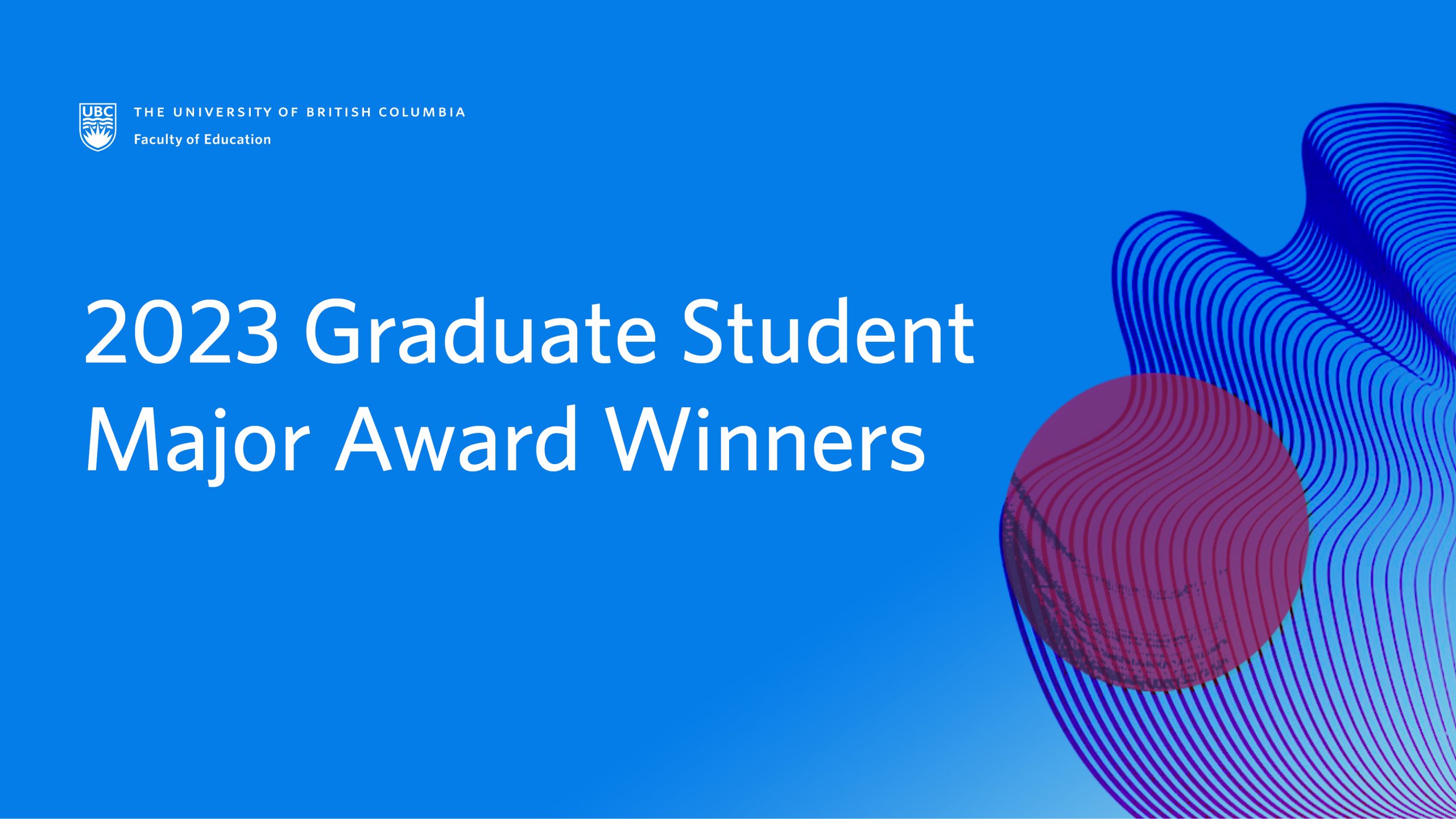
We are pleased to announce the below 2023 major research awards awarded to Faculty of Education graduate students
Tri-agency funding programs
The Social Sciences and Humanities Research Council (SSHRC) jointly administers many funding programs with the Canadian Institutes of Health Research (CIHR) and the Natural Sciences and Engineering Research Council (NSERC). The interagency collaboration reflects the federal research funding agencies’ commitment to their shared principles on research excellence, as well as on the growing importance of interdisciplinary research.
Canada Graduate Scholarships – Master’s
Jessica Ahn (ECPS)
Jennifer Doyle (ECPS)
Makayla Freeman (ECPS)
Samantha Graham (KIN)
Claire Hein-Salvi (ECPS)
Thalia Lang (ECPS)
Aimee Lutrin (EDCP)
Anisa Nasseri (ECPS)
Antonia Soldovieri (ECPS)
Stephanie Stresing (KIN)
Annika Szarka (KIN)
Zahira Tasabehji (EDCP)
NSERC Canada Graduate Scholarship – Doctoral
Brook Hadwen (KIN)
SSHRC Canada Graduate Scholarship – Doctoral
Belinda Chi (EDCP)
Linnea Kalchos (ECPS)
Alexandra Ross (LLED)
Monir Shahzeidi (KIN)
Julia Toews (ECPS)
SSHRC Doctoral Fellowship
Ian Alexander (EDCP)
Jamie Hawke (KIN)
Negar Khodarahmi (ECPS)
Kennedy Kneller (KIN)
Stephanie La France (EDCP)
Elizabeth Saville (OSE)
Xuyan Tang (ECPS)
Alexis Webster (ECPS)
Harris Wong (ECPS)
Teija Yli-Renko (ECPS)
Killam Doctoral Scholarships
Killam Doctoral Scholarships are one of the most prestigious awards available to graduate students at UBC. Approximately 25 awards are offered each year to the top doctoral candidates in the Affiliated Fellowships competition.
Killam Doctoral Scholarships
Stephen Busch (KIN)
Johanna Mills
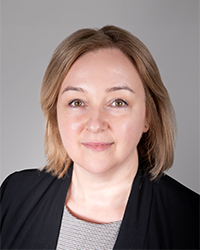
Communications Manager
Scarfe 2603
Tel 604 827 5553
Email johanna.mills@ubc.cs
Dr. Mary Bryson’s appointment as Academic Director of the Public Humanities Hub is extended
January 24, 2024

The UBC Faculty of Education is pleased to announce an extension of Dr. Mary Bryson’s appointment as Academic Director of the Public Humanities Hub through June 30, 2025.
The Public Humanities Hub (PHH) began as a three-year pilot project in 2019 to foster and support collaborative research, as well as to highlight and develop public-facing research in the Humanities at the UBC Vancouver. Research grants, awards and fellowships are made available annually through funding support from the Faculty of Arts, the Allard School of Law, the Faculty of Education, and the Office of the VP Research and Innovation.
Dr. Mary Bryson joined the PHH in April 2023, initially as Academic Co-Director, followed by their appointment as Academic Director for the 2023/24 year.
The PHH has achieved a number of significant successes, made possible by Dr. Bryson’s effective management of the PHH’s administration, communications, and programming. Working in collaboration with other units, Dr. Bryson has expanded PHH’s programming through the creation of a Noted Scholar Lecture Series — lectures and panels designed to showcase exemplary forms of interdisciplinary and community engaged scholarship.
Dr. Bryson has also continued support for innovative research and knowledge mobilization around key interdisciplinary themes in Public Humanities through funding programs for faculty and graduate students across the three affiliated Faculties: Arts, Education, and Law.
Dr. Bryson’s appointment as Academic Director of the Public Humanities Hub is extended through June 30, 2025.
Learn more about the UBC Public Humanities Hub by visiting their website.
Dr. Jan Hare secures funding for a new Early Childhood Education MOOC: Nurturing Childhoods Through Indigenous Ways of Knowing
February 5, 2024
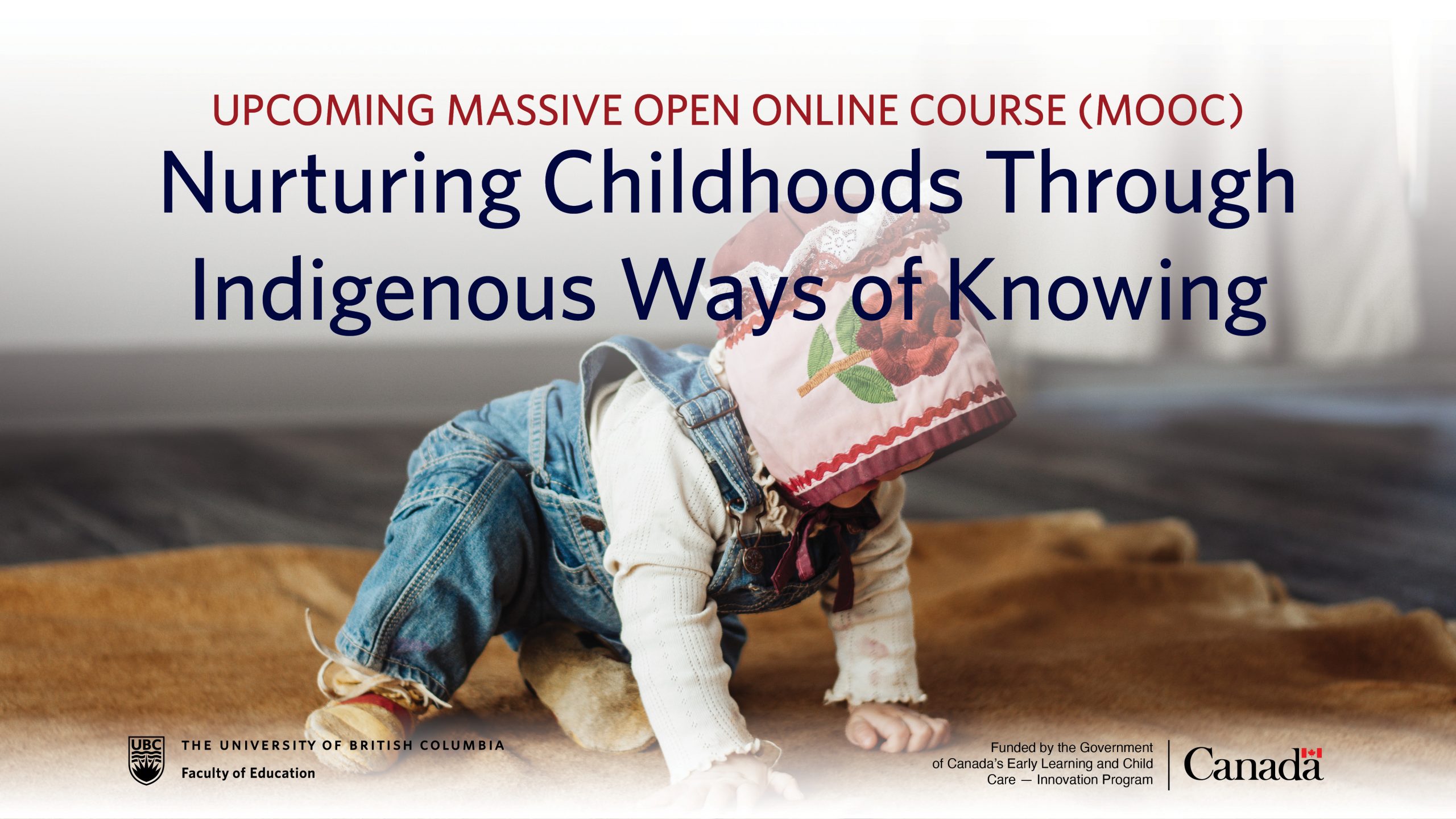
Photographer: Fiddler, W. (2023, March 19). [Anishinaabe Baby].
We are delighted to announce a groundbreaking development in Canada’s early learning and child care sector – an upcoming, new Massive Open Online Course (MOOC) titled, “Nurturing Childhoods Through Indigenous Ways of Knowing.” This innovative initiative is spearheaded by esteemed Anishinaabe scholar and educator Dr. Jan Hare, Dean pro tem, who is renowned for her dedication to Indigenous pedagogy and holds the prestigious Canada Research Chair in Indigenous Pedagogy.
Dr. Jan Hare, Dean pro tem, has secured $249,000 in funding from the Government of Canada’s Early Learning and Child Care Innovation Program, marking a significant milestone for the early childhood education landscape. The course is dedicated to fostering inclusive practices that honour the diverse voices within Indigenous communities and contribute to a more culturally responsive early learning and child care workforce across Canada.
The primary goal of this MOOC is to enhance the professional development of early childhood educators and service providers by integrating Indigenous perspectives, worldviews, and pedagogies into early learning environments. Through six learning circles, participants will delve into topics such as Indigenous knowledges, histories, perspectives, pedagogies, family and community, land as the first teacher, and Indigenous languages and literacies.
This initiative aligns with Canada’s Truth and Reconciliation Call-to-Action #12 “…to develop culturally appropriate early childhood education programs for Aboriginal families,” as well as the goals set out in UBC’s Indigenous Strategic Plan. Contributing to the resurgence and reclamation of Indigenous languages, cultures, knowledge, and rights, the MOOC will also help ensure inclusivity and cultural responsiveness in learning environments for young children and their families.
We extend our sincere gratitude to Dr. Hare for her exemplary leadership and visionary contributions, which have brought this project to life. Together, we look forward to advancing the integration of Indigenous knowledge in early childhood education and positively impacting the learning experiences of educators and children alike.
For those unfamiliar with MOOCs, they are accessible online courses featuring learning modules that participants can engage with at their own pace, ensuring accessibility for a diverse range of learners.
UBC Faculty of Education alumna Linda M. Perry, CM, appointed to the Order of Canada
January 22, 2024
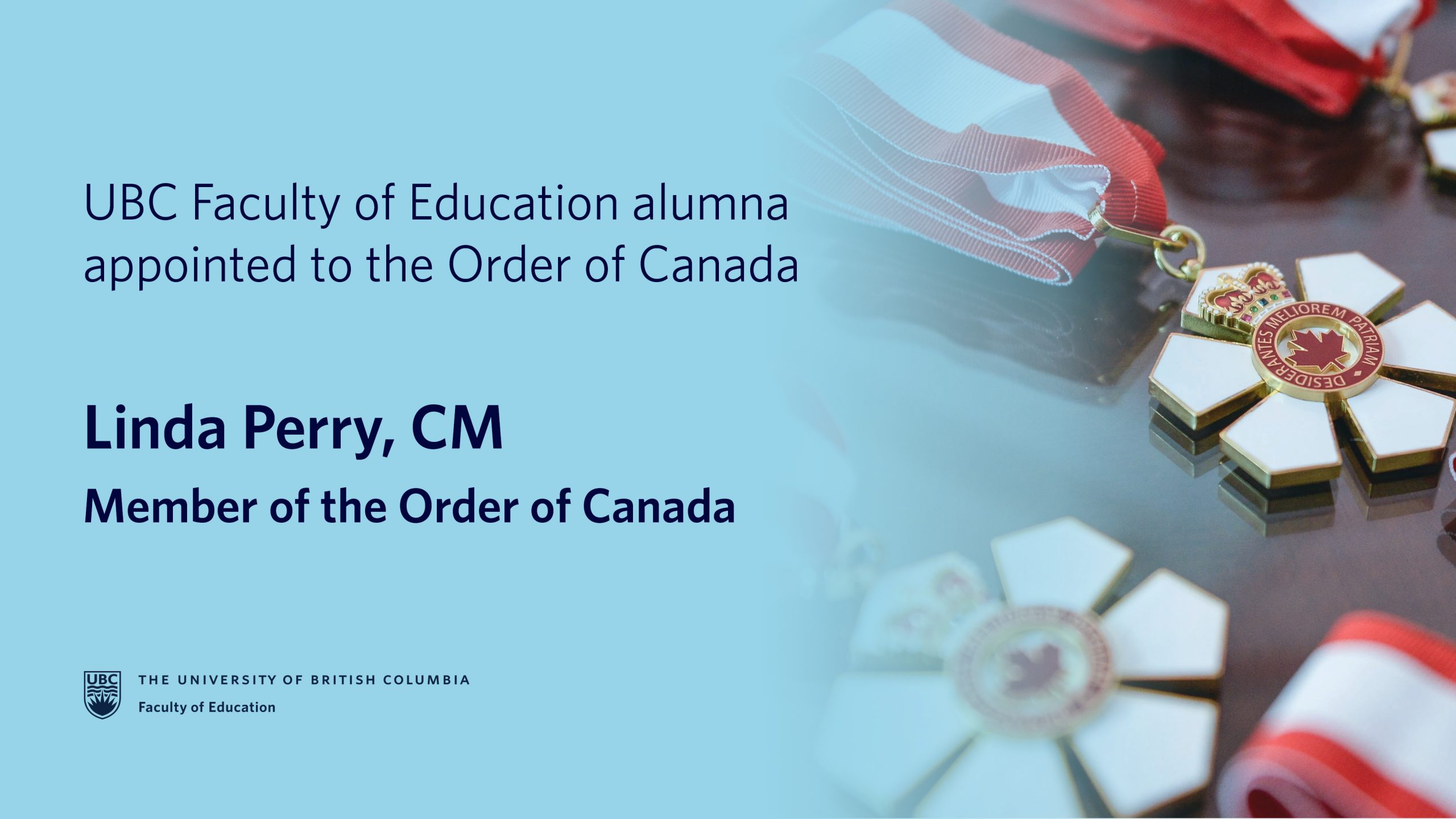
On December 28, 2023, Her Excellency the Right Honourable Mary Simon, Governor General of Canada, announced 78 new appointments to the Order of Canada. Among them is UBC Faculty of Education alumna Linda M. Perry, Member of the Order of Canada (CM).
The Order of Canada is one of Canada’s highest honours. It was created in 1967 to recognize the outstanding merit or distinguished service of Canadians who make a major difference to Canada through lifelong contributions in every field of endeavour. The three tiers of the order are Companion, Officer and Member. Appointees are nominated, then recommended to the Governor General by an advisory council.
Member of the Order of Canada
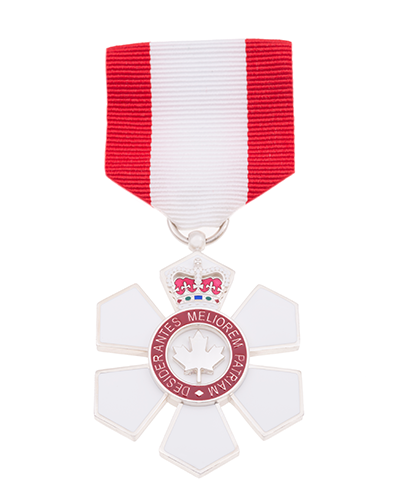
Linda M. Perry, CM
BEd’81, UBC Faculty of Education
For her visionary leadership at Vela Canada, and for her transformational advocacy on behalf of people living with disabilities.
To view the full list of UBC community members appointed to the Order of Canada, read UBC’s Office of the President annoucement.
To learn more about all 78 new appointments to the Order of Canada, read the Governor General of Canada’s announcement.
Dr. Rosalin Miles is inducted into the North American Indigenous Athletics Hall of Fame
January 23, 2024
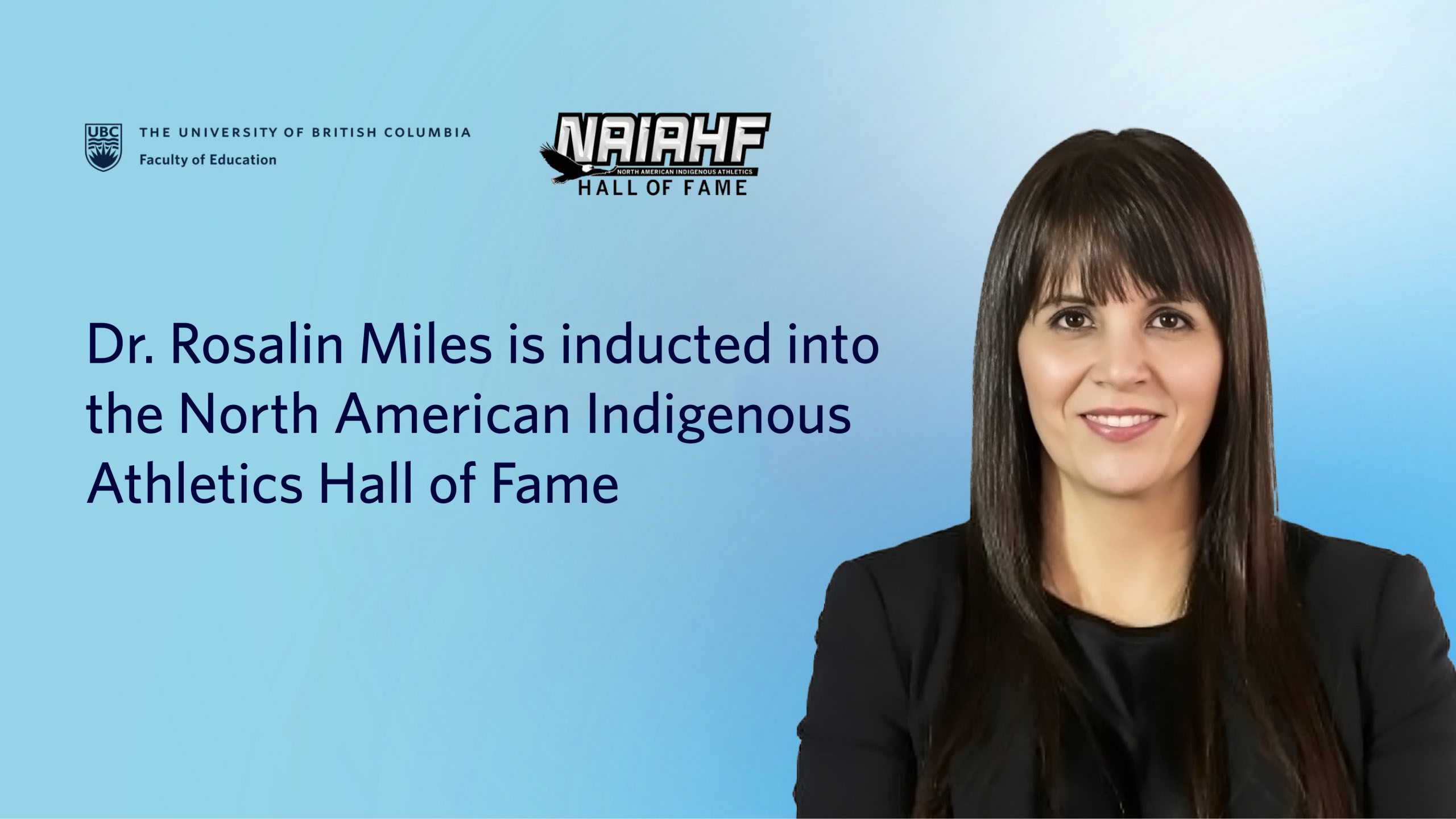
North American Indigenous Athletics Hall of Fame
The North American Indigenous Athletics Hall of Fame (NAIAHF) honours and recognizes Indigenous sports cultures by recognizing outstanding leadership and achievement in individual and team athletics. By honouring and celebrating the empowered journey of the annually inducted individuals and teams, their stories inspire future generations to follow their dreams in athletics and life.
The NAIAHF features individuals and teams in the categories of athlete, coach, builder, media, official, and trainer. The builder category recognizes Indigenous individuals that have attained a high level of excellence developing sustainable programming, produced or published scholarly work, or providing sponsorship for Indigenous athletics teams and organizations on a state, provincial, national, international or professional level in relation to participation in athletics competition and training. Among the new builder inductees is Dr. Rosalin Miles.
Dr. Rosalin Miles
Dr. Miles, Research Associate in Indigenous Studies, School of Kinesiology, Faculty of Education, is a member of the Lytton First Nation and is known in her native language as Maaj, meaning “first light of day.” She is a pivotal figure in advancing Indigenous sports on both national and international stages. She is the Founder and Executive Director of the Indigenous Physical Activity and Cultural Circle (IPACC) a network for First Nations, Métis and Inuit people who are involved in traditional activities, fitness, recreation, and sports. Recognized by the House of Commons and honoured with Vancouver Quadra’s Hidden Hero Award, Dr. Miles’ dedication to IPACC underscores her commitment to elevating the profile of Indigenous sports.
She has organized 10 National Indigenous physical activity and wellness conferences, and 11 active spirit walk and runs. These events have fostered a robust network for Indigenous athletes and sports enthusiasts, promoting cultural exchange and athletic excellence. Dr. Miles’ expertise in the physiological and psychological aspects of soccer benefited the University of Central Florida (UCF)’s women’s soccer team and UBC women’s soccer team, where she worked as a Certified Strength and Conditioning Specialist (CSCS). She received the UBC Alumni Award for Volunteer Leadership, and the Robert Small Boy Award “Heroes of Our Time” Scholarships from the Assembly of First Nations.
As a Director for the National Strength and Conditioning Association (NSCA) in British Columbia and Florida, Dr. Miles played a critical role in supporting CSCS accreditation, recognized by the NSCA Bronze Award. Her doctoral studies at UCF in education, combined with her Graduate Certificate in Non-Profit Management provided her skills to lead and inspire in the field of sports management and education.
As strength and conditioning coach at UCF, and later at University High School in Florida, she broke barriers as one of the first female Indigenous football coaches in Florida, highlighted her pioneering spirit. She also received the NSCA High School Professional of the Year for the United States. At the University of Arizona, she worked with the men’s baseball and women’s volleyball teams, and volunteered with Olympic and professional athletes. She competed in softball in Japan, is a champion in British Columbia and national power-lifting, and a fitness competitor at both the USA and World Nova Fitness challenges.
Dr. Miles’ work has enhanced the visibility and success of Indigenous coaches, athletes, and researchers, and has forged lasting connections and opportunities for cultural exchange and understanding in the world of sports. Learn more by visiting her profile on the NAIAHF website.
Olivia Zywicki
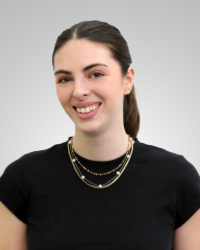
Coordinator, Alumni Engagement
Scarfe 2601
Tel 604 827 1507
Email olivia.zywicki@ubc.ca
